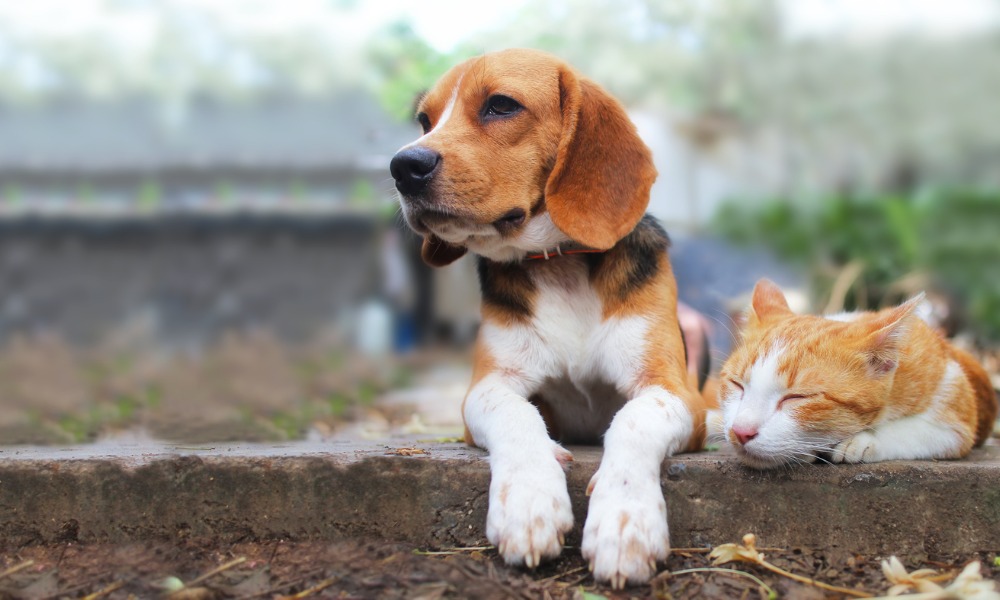Southern Cross reveals 10 unusual pet insurance claims in New Zealand

Southern Cross reveals 10 unusual pet insurance claims in New Zealand | Insurance Business New Zealand
Claims
Southern Cross reveals 10 unusual pet insurance claims in New Zealand
Surprising dangers and costs uncovered
Claims
By
Roxanne Libatique
The list includes a variety of incidents, from pets ingesting hazardous items to accidents involving falling trees and palm spikes.
Importance of pet insurance
The claims underscore how seemingly everyday occurrences can lead to significant risks for pets, resulting in expensive veterinary care.
In the absence of pet insurance, these costs can become a substantial financial burden, especially given the lack of public healthcare options for animals in New Zealand.
Kerri Murray, SCPI’s former vet nurse and national business development manager, emphasised that pets do not have Accident Compensation Corporation (ACC) or publicly funded healthcare unlike humans.
She added that even well-behaved pets are not immune to accidents or mischievous behaviour that can lead to unexpected and costly vet visits.
Unusual pet insurance claims in New Zealand
Murray shared the case of Indy, a dog who ingested part of a decomposing puffer fish found on the beach. The incident led to a $400 veterinary bill as well as significant stress for the owners, who feared the possibility of tetrodotoxin poisoning.
This example illustrates the kinds of dangers that pets can encounter and highlights the importance of insurance in managing such unexpected expenses.
“We get quite a few claims for things you would never dream might happen, and a lot of these situations can be very costly and stressful for the animal and the owner,” Murray said.
Despite New Zealand’s high pet ownership rate, insurance coverage for pets remains lower than in other pet-loving countries. SCPI has documented various other unusual claims over the years, including:
Maverick, a puppy, required surgery to remove a large cleaning cloth after vomiting up a sock, resulting in a $5,228 vet bill.
Kenzi, a dog, ingested a potentially toxic dose of calf feed containing ionophore, with veterinary costs amounting to $821.
Kaito, a cat, underwent surgery twice after jumping onto a palm tree, leading to a total bill of $979.
Geordie, a Labrador, needed extensive treatment after consuming a spool of cotton, a needle, and other items, costing $4,871.
Tekka, a dog, required surgery to remove carpet underlay and other materials from his stomach, with costs totalling $3,975.
Tahlullah, a dog, ingested dental floss, necessitating multiple surgeries, which cost $2,873.
Monty, a dog, swallowed magnets, resulting in a procedure that cost $8,703.
Charlie, a dog, suffered a hip dislocation after being struck by a falling tree, with surgery costs of $7,072.
Pepper, a cat, fell into a paint can, requiring sedation and shaving, with a vet bill of $425.
Zoe, a dog, swallowed a sewing needle, resulting in a veterinary bill of $1,465.
In addition to these claims, SCPI released data on the most commonly insured pet breeds in 2023.
Labradors, cavoodles, and golden retrievers were the top insured dog breeds, while domestic short hair and ragdoll cats led among felines.
In 2023, the insurer paid out a total of $29.95 million in claims, with several individual claims exceeding $10,000. The most expensive claims included $14,119 for a pug with a traumatic injury and $12,652 for a labradoodle diagnosed with cancer.
Related Stories
Keep up with the latest news and events
Join our mailing list, it’s free!






